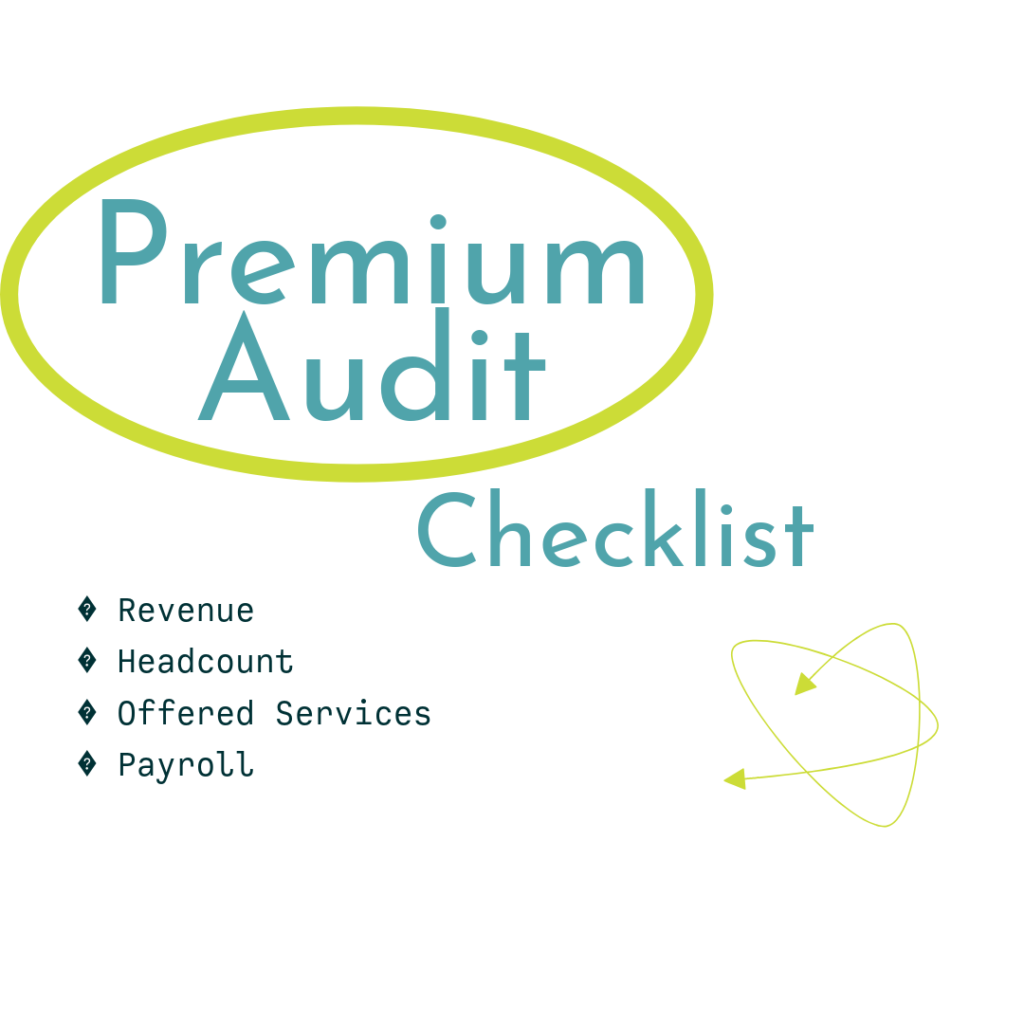Understanding premium audits on commercial insurance policies, and the purpose they serve.

Understanding Premium Audits in Commercial Insurance: What You Need to Know
When you purchase a commercial insurance policy, you agree to pay a premium—essentially, the price of the insurance. But what you might not know is that, in many cases, the premium you pay upfront is based on an estimate. To ensure fairness for both you and the insurance company, a process called a “premium audit” is often conducted at the end of your policy period. But what exactly is a premium audit, and why is it important for your business to respond?
What is a Premium Audit?
A premium audit is a review of your business’s records at the end of your insurance policy term. The goal is to verify that the estimated information used to calculate your premium (like payroll, sales, or other factors) matches your actual figures for that period.
Here’s an example to illustrate:
Imagine a business that was generating $1 million in revenue, but the policy was initially set up based on an estimate of $250,000 in revenue. In this case, the insurance company might not be receiving the appropriate premium for the risk. A larger business is more likely to encounter a claim than a smaller one, so it makes sense that a higher premium would apply. Conversely, if your business had slowed down and only generated $50,000 in revenue instead of the $250,000 initially estimated, you shouldn’t be paying the same premium as a larger, more active business.
This adjustment process ensures that both the insurer and the business are paying or receiving the right amount of premium based on actual performance, rather than on the initial estimates.
This is also why it’s important to provide your insurance agent with accurate payroll or revenue figures when quoting or purchasing a commercial policy.
Why Do Premium Audits Happen?
Premium audits are a normal part of the commercial insurance process. Nearly every commercial insurance policy is auditable because businesses change—they grow, slow down, or shift their services. Audits help keep premiums competitive and accurately priced by confirming key figures like revenue and payroll, or services provided.
The reason behind this is straightforward: the insurance company needs to ensure that the premium you are paying, accurately reflects the level of risk associated with your business. If your business has grown, it’s more likely to encounter a claim, and the premium should reflect that increased risk.
Alternatively, if your business has slowed down and perhaps your revenue has decreased, a lesser premium could be a welcomed change.
How Does a Premium Audit Work?
The process usually goes something like this:
- Notification: You’ll be informed that a premium audit is required at the end of your policy term.
- Data Collection: You’ll be asked to provide documentation, such as payroll records, sales reports, or tax documents. The specific records required depend on the type of business and the policy.
- Review: The insurance company will review the records to compare the estimated figures with the actual numbers.
- Adjustment: If there’s a discrepancy, your premium will be adjusted. If your actual figures were higher than the estimate, you may owe additional premium. If they were lower, you might receive a refund or credit.
Why It Matters to Your Business
A premium audit ensures that you’re not overpaying or underpaying for your insurance coverage. For businesses, this means peace of mind knowing that the cost of your insurance accurately reflects your operations. It also helps to avoid surprises down the road, such as unexpected charges or, conversely, refunds that can improve your bottom line.
Premium audits can also help to uncover coverage gaps, or encourage a review of your policies and recommended coverage that your business may need.
Tips for a Smooth Premium Audit
To make the premium audit process as smooth as possible:
- Keep Accurate Records: Maintain detailed and organized records throughout the year. This includes payroll, sales, and any other information relevant to your policy. Most of the information insurance carriers will request, can be obtained through your accounting software such as Quickbooks, or from your bookkeeping provider.
- Communicate Changes: If your business experiences significant changes during the policy term, like hiring more employees or expanding services, inform your insurance company. They may be able to adjust your premium estimate mid-term, reducing the impact at audit time.
- Ask Questions: If you’re unsure about what’s required or how the audit process works, don’t hesitate to ask your insurance agent or carrier. They can guide you through the process.
Conclusion
Premium audits are not always conducted for each policy, or at each renewal. If you’re notified of an audit request, there’s no cause for alarm. If you have questions about the process or need help completing a premium audit, your insurance agent should be able to help and facilitate the completion of the process.
While the idea of a premium audit might sound daunting, it’s simply a way to ensure your commercial insurance is fairly priced based on your actual business operations. By understanding the process and being prepared, you can make sure your audit goes smoothly and that you’re only paying for the coverage you actually need.

